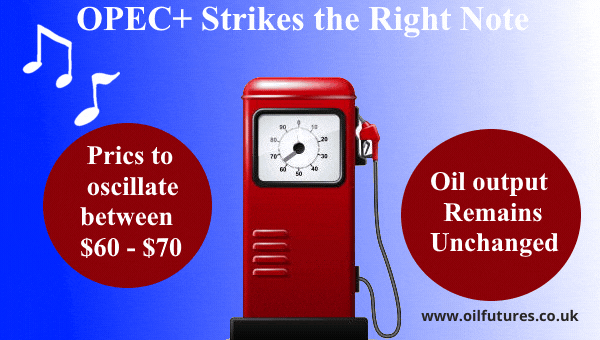The OPEC+ collectively decided not to act on impulse
in the unprecedented circumstances, triggered off by the outbreak of the
Omicron variant of the Coronavirus.
No sooner was it announced than it was well received
by the beleaguered consumers across the world, especially when the risk of yet
another outbreak of the Coronavirus is on the horizon; the relief resonated
with the global community regardless of the obvious wealth disparities, because
the rising energy prices have been causing major problems on many fronts, which
could eventually hurt the producers too.
The ministerial meeting of the OPEC+ ended today,
having decided to keep the existing policy unchanged; that means, the addition
of extra 400,000 barrels per day to the crude oil markets in January will go
ahead as previously planned.
Up until the last minute, most analysts thought that
the OPEC+ would curtail the crude oil output in light of falling crude oil
prices, due to the combined impact of the outbreak of the new variant of the
Coronavirus and the joint release of the strategic petroleum reserves, SPRs, by
world’s major consumer nations led by the US.
Those who advocated retaliatory measures wanted the
cartel to cut down on planned increase in output, promised a few months ago.
The oil producers of the group, however, decided that the time was not ripe for
tit-for-tat measures, especially when the pandemic started staring at the
global economy – once again.
In short, rocking the boat at a time like this is in
no one’s interest.
The outcome is a diplomatic success for all the
parties involved too, especially when there is no such a thing in Vienna, the
Austrian capital, from the current talks over the JCPOA, 2015 Iranian nuclear
deal.
At the time of writing this, the two sides are as
far apart as they were months before with mutual distrust being blatantly on
display.
The steady contribution of the crude oil made by the
OPEC+ implies that the arrival of Iranian oil to the crude oil markets is still
a distant dream, despite the optimism of the Iranian oil producers.
With the new development, the price of crude oil may
fluctuate between $60 and $70 a barrel in such a way that the global consumers
can breathe a sigh of relief – at a very difficult and challenging time.







